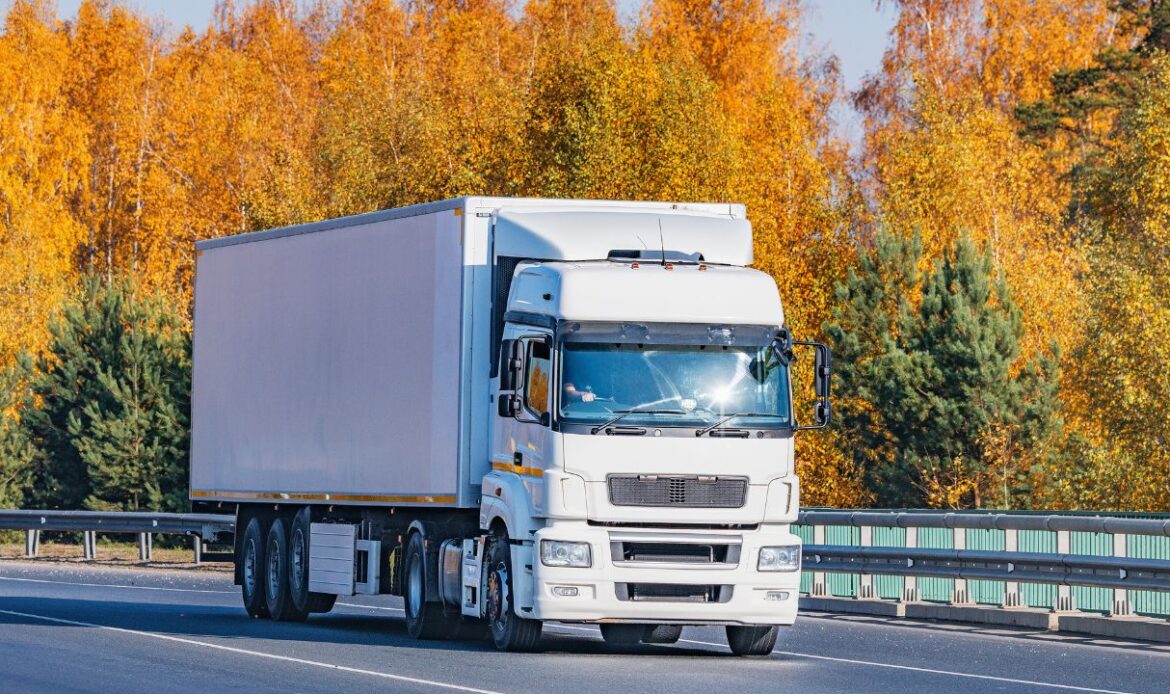
Transporting goods across the country or even a few states demands efficiency, reliability, and affordability. Many individuals and businesses rely on ground shipping to fulfill these needs.
But what does this method of delivery entail, and why is it so popular? This guide provides a detailed look into how land-based logistics work, the benefits they offer, and tips on maximizing their value for your shipping needs.
Whether you’re handling personal shipments or managing a business with regular deliveries, knowing how ground transportation works can help you make smarter logistics choices, cut costs, and meet deadlines more easily.
What Exactly Does “Ground Shipping” Mean?
At its core, this term refers to transporting goods using land vehicles such as trucks, vans, or sometimes trains. Unlike air or ocean freight that relies on planes or ships, ground-based delivery stays entirely on land from start to finish.
This shipping method is a popular choice for those looking to balance cost and delivery speed. It provides reliable transportation to a wide range of destinations—from bustling urban centers to the most remote and hard-to-reach locations.
Key Characteristics of Ground-Based Logistics
- Flexible Delivery Times
The typical timeframe for overland shipments ranges between 1 and 5 business days. Delivery speed depends on the distance between the pickup point and the destination. Though not as fast as air freight, many providers offer options to expedite the process for urgent shipments.
- Wide Accessibility
This type of transportation is designed to cover extensive ground—literally. Reliable logistics networks ensure that even the most remote corners of the 50 states are within reach.
- Affordable Shipping Costs
Choosing land-based shipping methods often minimizes expenses, making them appealing to cost-conscious businesses and individuals alike.
- Sustainability
By consolidating loads and using efficient routes, land logistics are not only budget-friendly but also eco-conscious, reducing the carbon footprint compared to less-efficient methods.
Ideal Use Cases
While overland freight may not be the fastest option, it provides great value for non-urgent deliveries, large shipments, or areas where air or sea transport isn’t practical.
A Step-by-Step Breakdown of the Ground Delivery Process
To better understand how ground-based shipping works, here’s an overview of the typical steps involved:
1. Pickup or Drop-Off
Goods are either collected from a sender’s location or dropped off at a local shipping facility. Providers often offer scheduled pickups to improve convenience for businesses.
2. Processing and Sorting
Once collected, packages are routed to distribution centers, where they are separated and organized based on their destination. At this stage, logistics teams often consolidate smaller packages into larger shipments for efficiency.
3. Transportation to Destination Hubs
Goods are loaded onto trucks or, in some cases, transported by train to regional hubs near their delivery point. These vehicles travel routes that are optimized for cost and timing.
4. Final Mile Delivery
The last step involves delivering packages directly to the recipient’s address, often using smaller vans or trucks. This phase may include advanced tracking systems to notify customers of the status of their shipments.
Additional Tracking Features
Today’s providers often offer detailed tracking tools that give customers real-time updates on their parcels. This added transparency helps build trust in ground transportation services.
Why Ground Freight Remains a Top Choice for Many
With so many available shipping methods, why do so many individuals and businesses choose transportation via land? Beyond direct affordability, other vital factors make this form of logistics particularly appealing.
Cost-Effective Alternatives
Compared to air or expedited services, overland freight offers significant cost savings. Whether you’re shipping a single package or managing bulk freight, this choice provides reliable service without hefty expenses.
Extensive Reach Within the United States
Whether you’re in a big city or a small rural town, land logistics networks make sure your goods can be delivered anywhere in the country. This wide coverage makes it a great option for businesses serving customers nationwide, or for people sending items to family in distant places.
Reliable Delivery
By relying on established routes and a proven infrastructure, surface freight boasts a track record of consistent, on-time delivery. Many major carriers invest heavily in their fleets and logistics systems to ensure reliability.
Environmentally Friendly Solutions
Consolidated shipments reduce the number of vehicles on the road, leading to lower overall emissions. For businesses aiming to meet sustainability goals, surface logistics can serve as an eco-friendly alternative to air transport.
Comparing Ground Logistics to Other Shipping Methods
Every logistics method has its strengths and weaknesses. Here’s how land-based freight stacks up against air and sea methods:
- Air Freight
While air freight is unbeatable for urgent deliveries due to its speed, it comes at a much higher cost. It’s typically reserved for time-sensitive or high-value shipments.
- Sea Shipping
Ocean freight is ideal for international and especially heavy, bulk shipments. However, it lacks the flexibility and quick turnaround offered by land logistics for domestic shipping.
- Surface Freight
Ground transportation serves as the happy medium between speed and cost, making it perfect for non-urgent deliveries within the 50 states.
Advanced Solutions Offered by Land-Based Logistics Providers
Modern advancements in technology and logistics mean that today’s overland providers offer much more than standard services. Depending on your individual or business needs, you can customize your shipping solutions.
Expedited Options
For those looking for faster delivery times without opting for air services, many providers offer accelerated timelines for surface-based shipments. These expedited services cater to businesses handling time-sensitive orders while balancing costs.
Bulk Freight Handling
Businesses often rely on ground freight for massive shipments involving heavier goods or larger volumes. Carrier services offer specialized vehicles and strategies for transporting bulk items without disruption.
Tailored Packages
Whether you’re running an e-commerce venture or handling unique customer demands, providers offer flexibility to cater to varying delivery requirements. These include add-ons like signature confirmation, tracking updates, and white-glove delivery.
Practical Tips to Use Ground-Based Transportation Effectively
To make the most of surface-based logistics, consider the following steps for smoother, more efficient shipping:
- Start Planning Early
Always account for potential delays during busy periods or holiday seasons. Scheduling your shipments early minimizes stress and ensures your goods arrive on time.
- Use Tracking Features
Keep tabs on your packages throughout transit by utilizing the tracking tools provided by logistics companies. This is especially important for businesses managing customer expectations.
- Optimize Packaging
Properly packaging your goods not only protects them during transit but also minimizes volumetric weight, potentially lowering costs.
- Ask About Services for Businesses
If you’re running a business, discuss tailored shipping packages with your provider. Long-term partnerships with carriers can result in cost savings through volume discounts or consistent rates.
Is Ground Freight the Right Solution for You?
Deciding which logistics method to use ultimately depends on your personal or business priorities. If cost savings are your primary concern, land-based services are an excellent choice. On the other hand, if you require same-day or next-day service for time-sensitive deliveries, you may need to consider alternative methods.
However, for most everyday shipping needs—whether you’re sending a single package or managing inventory for an e-commerce business—surface logistics provides a well-rounded balance of affordability, reliability, and accessibility.
Final Thoughts
Ground-based logistics are not only practical but also play an important role in the transportation industry, helping both businesses and individuals handle their shipping needs efficiently. By choosing this affordable and dependable option, you can make sure goods arrive safely while keeping costs down.
If you’re searching for dependable services to simplify your relocation or shipping needs, visit Universal Relocations. Their professional expertise ensures your belongings get where they need to go, all while meeting your unique requirements.

 800-13-7356
800-13-7356
